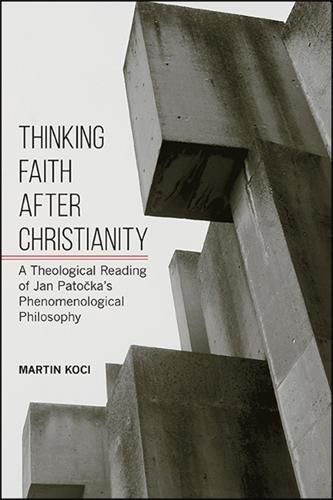Readings Newsletter
Become a Readings Member to make your shopping experience even easier.
Sign in or sign up for free!
You’re not far away from qualifying for FREE standard shipping within Australia
You’ve qualified for FREE standard shipping within Australia
The cart is loading…






This title is printed to order. This book may have been self-published. If so, we cannot guarantee the quality of the content. In the main most books will have gone through the editing process however some may not. We therefore suggest that you be aware of this before ordering this book. If in doubt check either the author or publisher’s details as we are unable to accept any returns unless they are faulty. Please contact us if you have any questions.
Winner of the 2020 Emerging Scholar’s Theological Book Prize presented by the European Society for Catholic Theology
This book examines the work of Czech philosopher Jan Patocka from the largely neglected perspective of religion. Patocka is known primarily for his work in phenomenology and ancient Greek philosophy, and also as a civil rights activist and critic of modernity. In this book, Martin Koci shows Patocka also maintained a persistent and increasing interest in Christianity. Thinking Faith after Christianity examines the theological motifs in Patocka’s work and brings his thought into discussion with recent developments in phenomenology, making a case for Patocka as a forerunner to what has become known as the theological turn in continental philosophy. Koci systematically examines his thoughts on the relationship between theology and philosophy, and his perennial struggle with the idea of crisis. For Patocka, modernity, metaphysics, and Christianity were all in different kinds of crises, and Koci demonstrates how his work responded to those crises creatively, providing new insights on theology understood as the task of thinking and living transcendence in a problematic world. It perceives the un-thought element of Christianity-what Patocka identified as its greatest resource and potential-not as a weakness, but as a credible way to ponder Christian faith and the Christian mode of existence after the proclaimed death of God and the end of metaphysics.
$9.00 standard shipping within Australia
FREE standard shipping within Australia for orders over $100.00
Express & International shipping calculated at checkout
This title is printed to order. This book may have been self-published. If so, we cannot guarantee the quality of the content. In the main most books will have gone through the editing process however some may not. We therefore suggest that you be aware of this before ordering this book. If in doubt check either the author or publisher’s details as we are unable to accept any returns unless they are faulty. Please contact us if you have any questions.
Winner of the 2020 Emerging Scholar’s Theological Book Prize presented by the European Society for Catholic Theology
This book examines the work of Czech philosopher Jan Patocka from the largely neglected perspective of religion. Patocka is known primarily for his work in phenomenology and ancient Greek philosophy, and also as a civil rights activist and critic of modernity. In this book, Martin Koci shows Patocka also maintained a persistent and increasing interest in Christianity. Thinking Faith after Christianity examines the theological motifs in Patocka’s work and brings his thought into discussion with recent developments in phenomenology, making a case for Patocka as a forerunner to what has become known as the theological turn in continental philosophy. Koci systematically examines his thoughts on the relationship between theology and philosophy, and his perennial struggle with the idea of crisis. For Patocka, modernity, metaphysics, and Christianity were all in different kinds of crises, and Koci demonstrates how his work responded to those crises creatively, providing new insights on theology understood as the task of thinking and living transcendence in a problematic world. It perceives the un-thought element of Christianity-what Patocka identified as its greatest resource and potential-not as a weakness, but as a credible way to ponder Christian faith and the Christian mode of existence after the proclaimed death of God and the end of metaphysics.